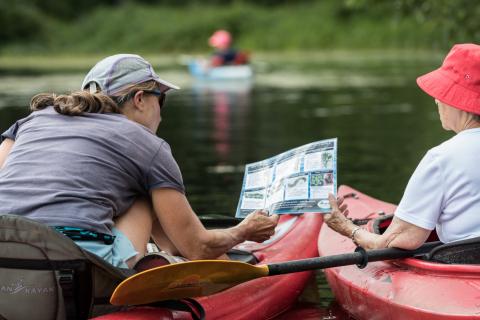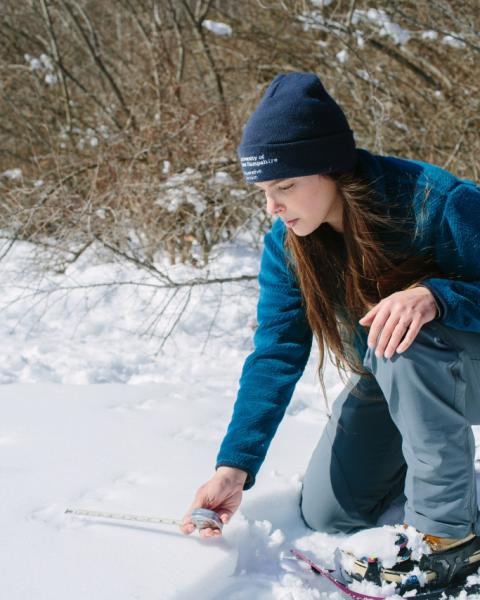Science Needs You!

Are you a citizen scientist? Do you want to be? The activity we call “science” began as citizen science centuries ago, with curious people asking questions about the world around them and looking for answers through observation and experimentation. Today, scientists are rediscovering the benefits of public participation in scientific research.
Anyone can become a citizen scientist by engaging in scientific work, usually in collaboration with or under the direction of professional scientists and scientific institutions. This is great for professional scientists because a research team with citizen scientists can collect more diverse data more quickly than the professional scientists alone could ever hope to collect, resulting in a more complete picture of whatever is being studied. As volunteers, citizen scientists also let project budgets stretch further and as members of the public, citizen scientists keep the professional scientists accountable and responsive to the public's concerns.
How do you benefit from participating in scientific research? You spend time working on a fun, meaningful project with like-minded people, finding answers to intriguing questions. There are projects available for almost every interest, skill level and age; find one focused on research important to you, that sparks your curiosity. Learn new information about the topic being studied or a new skill, and get involved at different levels of the scientific process – from collecting observations to analyzing data to developing new questions.
There are projects available for almost every interest, skill level and age; find one focused on research important to you, that sparks your curiosity.
The work done by citizen scientists can impact people's lives, for example tracking water quality, recording the presence of invasive species, and influencing public policy. Earlier this year, the City of Keene approved annual temporary road closures to protect amphibians during their spring migration. This decision was partly based on data collected every spring by citizen scientists participating in Salamander Crossing Brigade events in Keene. At the state level, New Hampshire Fish and Game collects citizen reports on game and nongame wildlife, keeping an eye on population trends, ranges, and habitat use. This information feeds directly into the agency's strategic planning and decisions about where to focus future research and conservation efforts.
Whatever your motivation, you can find a citizen-science project that fits your interests and availability: monitoring wildlife, measuring water pollution, recording when leaf out happens in the spring. List the birds visiting your backyard feeder and submit your data to a global project like eBird or participate in a local neighborhood BioBlitz. Go online and transcribe historical documents with the Smithsonian Institution, take a hike with your camera and record haze pollution with the Appalachian Mountain Club, or visit a lake and help the Loon Preservation Committee track New Hampshire's loons. You can sign up to trek through field and forest documenting the spread of invasive species with EDDMapS, or use your pattern-matching skills to help classify galaxies online with Galaxy Zoo. There are many family-friendly projects and if you have children in school, they may already be taking part in one, such as Bumble Bee Watch or Project BudBurst. Find a project that excites you and get involved!
-------------------------------------------------------------------------------------------------------------------------------------------
These websites are a great place to start:
- Nature Groupie: Outdoor Volunteers in New England Citizen Science Program Database
- UNH Cooperative Extension Citizen Science Programs
- New Hampshire Fish and Game Volunteer Opportunities
Is this project a good match for me?
Here are a few things to consider, in addition to the time commitment, when selecting a citizen science project. A project's website should answer the following questions or provide contact information for the research team so they can answer them.
- What is the purpose of the project? What do the researchers hope to discover?
- What are the benefits of this study, for me as a participant, for the researchers, and for the wider community?
- How will I contribute as a citizen scientist? Will I collect data, help analyze the data, help design the project, help disseminate the findings?
- Will my scientific knowledge increase as part of the project?
- When will the results of the study be known and how will the findings be shared with participants?
Written by Jocelyn Duffy. Jocelyn is a NH Coverts Project volunteer who loves spending time outside enjoying the natural world. She received her B.S. in natural resource management in 2017 from Oregon State University and has been exploring the places where people and the environment come together. She and her husband, Craig, recently settled in Peterborough, NH after living in Texas, Oregon, Maine and Massachusetts.
